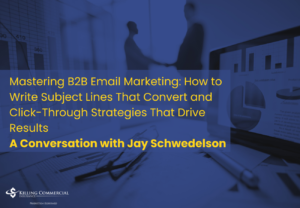
From InsurTech to Relationship-Driven Risk Management: Lessons for Modern Insurance Producers – A Conversation with Brett Fulmer
In a constantly evolving insurance landscape, commercial producers are being forced to adapt—quickly. Between InsurTech advancements, shifting market conditions, and increasing client expectations, producers must learn how to balance innovation with deep relationship-building and technical risk expertise. On a recent episode of the Power Producers Podcast, industry veteran David Carothers sat down with Brett Fulmer, principal at Newport Beach Insurance Center, to talk about navigating these dynamics with authenticity and strategy. What followed was a roadmap for producers who want to succeed in today’s middle market.







Responses